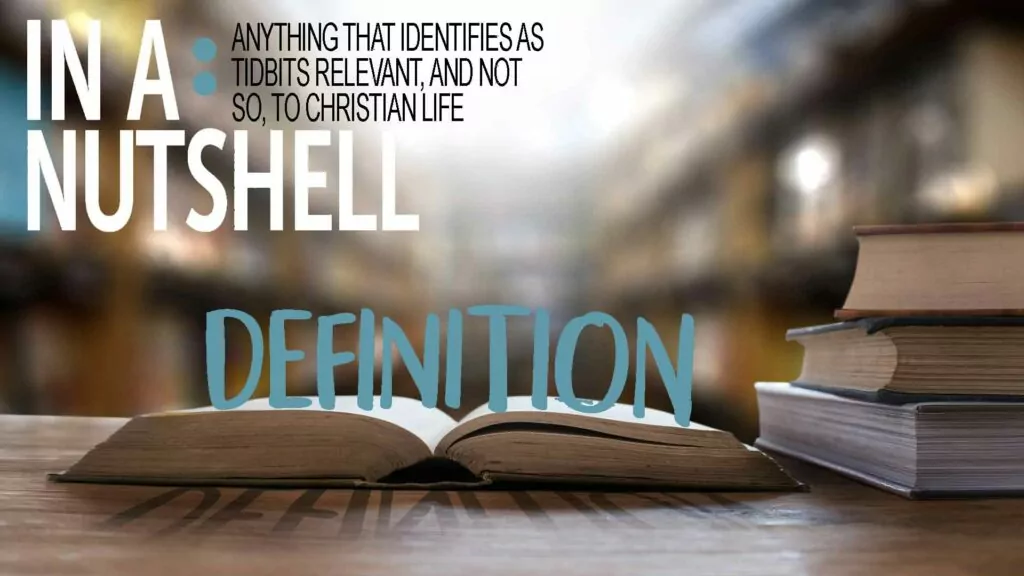Fostering? I could never!
“Oh, I could never foster. I could never part with kids after having them in my home for a while. It would break my heart. Fostering is not for me.”
So many times we’ve had people say things like this to us.
It can be a bit awkward. I mean… we foster… and we have for years. What’s that say about us and our hearts? You think that we don’t grow attached? Or that goodbyes are easy? Or that there’s no risk to our emotions?
It’s not like we are so uniquely cut out for the task. Fostering is hard work and time consuming. It stretches you and can be taxing on home life.
But it’s also beautiful in that it teaches you to love a stranger; to embrace a needy child. In essence, it’s the core of the gospel at work: to love a stranger. As former strangers now loved by God, wouldn’t He in turn want us to love strangers? It seems pretty important to Jesus in light of eternity.
“They also will answer, ‘Lord, when did we see you hungry or thirsty or a stranger or needing clothes or sick or in prison, and did not help you?’ “He will reply, ‘Truly I tell you, whatever you did not do for one of the least of these, you did not do for me.’ “Then they will go away to eternal punishment, but the righteous to eternal life.” (Matt. 25:44-46).
Imagine… making time to care for the needs of strangers can affect our eternal destiny!
I wonder if people who say, “I could never do that,” are also covering up a bit of a fear of the unknown, or attempting to disqualify themselves, or maybe just justifying not interrupting their life with other kids. Whatever the reasoning, be sure to talk about it with God.
Maybe the timing is not right for you, or you have circumstances that are not conducive to fostering at this time. That’s ok. But for the most part fostering is something everyone can participate in, especially if you confess Christ and keep in mind what is important to Him.
Taking a huge risk
There’s a point where you have to set aside your worries and fears (says me the worrywart) to not focus on the hurt of goodbyes, but instead to think about the joy of hellos. To think about welcoming a child (yes, the least of these) into your home. With thousands of kids in need of care right now, there’s opportunity for you to open your door, and welcome one of them into your heart and your home.
And yes, opening the door of your home, means opening your heart. And opening your heart means taking a huge risk… to love and to care for someone. When we love and care for someone, we risk that someday we may have to part ways, and say goodbye. But, better to have loved and feel the pain of separation, than not to have loved at all.
We were made for relationship. We welcome people into our lives all the time: a new birth, a new friend, a new neighbor, a new wife, a new husband, a new family member, a new community, and maybe a new foster child. And whenever we welcome someone in, we know that at some point we’ll have to say goodbye. Kids grow up and move out, we might travel around, we might leave the country, and any one of us might die at any time.
We part ways with people all the time. Life is full of goodbyes, and sometimes heart-wrenching goodbyes that leave us marked forever. Love is like that – it’s risky. And while we live on this side of heaven, love will be severed at some point.
But as in any relationship, we don’t focus on the goodbyes. We focus on the time we get to be together, and then make the best of it.
So, if you’re still thinking you are not even slightly prepared to foster because you can’t handle the pain of separation, I beg to differ. We face separation in all relationships. And if its fear of the unknown or not wanting interruption, well, that can be challenged.
What if your life up to this point has been the training ground for you to take in someone new, to take in a stranger to love? What if life training for you included being stretched in new ways through fostering?
Our story
My wife and I have six children. They’re all grown up now. All of them except for one have moved out of the house.
We often got strange looks when traveling about as family. People would ask, “Are these all your kids?” (No, we just collect them as we go.) “Yes, they’re all our kids.”
“Must be a lot of work!”
“Well, they didn’t all come at once and they all do help each other.”
“Same woman?”
“Yes, same woman.”
And people would walk away in amazement. One guy pulled me aside and said, “Must’ve cost you a fortune!” I responded, “But the rewards far outweigh the costs.”
Contrary to today’s cultural ignorance, large families are a wonderful thing. Kids are not a “cost,” they are a reward, a gift. And you raise them to contribute. Not only to society, but to the Kingdom of God.
Despite some bickering and some fighting once in a while, there is a beauty to forming your own little family community that interacts with the broader community. Family is the place we learn how to live together as disciples of Jesus, how to love, forgive, grow in patience, accommodate, take care of the needs of others, reveal blind spots, and discuss how to live in our crazy world. Family is the training ground from which we shoot forth our kids like arrows into the world to go and make a difference in the name of Jesus. Life can be dreadfully lonely without family.
When a couple of our oldest kids moved out of our home, we then had empty bedrooms. We wanted to fill them and invite others into that “family” thing we do, learning to live together as disciples of Jesus. So we thought to foster. Opening our doors to new children meant introducing them to Jesus. No force, just display.
We called a family meeting to share with our kids our idea to begin fostering and to inquire of them if they’d be supportive of that. All were in favor (whether moved out or not).
One ad, one phone call
And then something crazy happened. My wife Joanne saw an ad in the newspaper for Bridgeway Homes, a fostering agency out in Cobourg, Ontario. She called and inquired about fostering. After a number of months of training and inspections, we became an official fostering home for them. But here’s the thing: Bridgeway only ever put out one ad in the Niagara area newspapers. And Joanne was the only one person to respond to it. Coincidence? I don’t think so.
Through Bridgeway we began fostering. Numerous children came to stay with us, mostly for respite, so usually it was for one or two weeks at a time. One girl, a young teen, who had experienced a lot of moving around, got approval in mid-November to stay with us over Christmas and into the new year. She had had some deep questions about life that she had unpacked with me in my office and was so content to stay with our family that she was bursting with joy the day she unpacked. “Mark, I get to spend Christmas with you guys! I’m so excited!”
Two days later the Children’s Aid stopped by our house when she was at school. They grabbed her stuff, told us they had found a placement for her and had to act quickly, and then went to pick her up from school to take her away. No goodbyes.
Man, that hurts. One thing that hurts more than goodbyes, is not having a chance to say goodbye. I was crushed for days. “Mark…. Christmas with you guys….”
Yes, fostering can hurt. I always hope that the kids we were blessed to have would be blessed in return for having met us.
And then along came AJ, the foster boy we had for seven years. He had no idea of who God was, but after only 4 days with us he was already asking if he could pray. And in less than a month, he was asking my wife and I if he could call us “Mom” and “Dad”. About 3 years ago, when hospitalized, we were told he would die, so we experienced those kinds of goodbyes. But God’s plan was recovery! And now recently, due to increased care needs, he was moved out of our home – another goodbye.
Fostering… it’s living, loving, laughing, leaving…. but often lasting.
Everyone can participate
Remember I said, “fostering is something that everyone can participate in.” I did not say fostering is something that everyone can do (although I think most can). But fostering is something everyone can participate in. This is where “wrap around” is key. If you cannot foster yourself, everyone can help – everyone can wrap support arms around someone who is fostering.
You can open your home for visits or respite, you can drop in and help out, you can make a meal for the foster family, you can take foster kids out on trips with your kids, you can support the foster parents, you can offer to drive for outings, you can ask how to be of help, and you can pray for all involved.
Dispelling a few excuses
But I just can’t.
How about talking about it? And also take it to God. List off all your reasons and tell Him why you can’t. It’s not like God will be shocked or overwhelmed. But He may ask you to shift from “I can’t” to “trust Me.” And if you seriously can’t take someone in yourself, find someone who did take a child in and ask how you can be of help, how you can be part of a “wrap around.”
I’m too busy.
When in life will you not be busy? It’s generally when we are laying on a hospital bed or recovering at home that we finally slow down and realize we’ve been occupying ourselves with a whole lot of “stuff.”
And in times we are not occupied, we are preoccupied. We like to busy ourselves! Being busy is what we gravitate to. Often we hear, “So, are you keeping busy?” The challenge for the rest of our life is to create space in our schedules — space in which we allow God to act. Maybe even space for a certain child to enter into.
The timing is not right.
We can always come up with reasons why the timing is not right. We’re too young. We’re just married. Our family is too big. Our family is too small. We don’t know what to do. The system is too complicated. We’re too old. And the list goes on.
Analyze your situation and write down what it is that you think is getting in the way and see if, how, and when the obstacles can be removed. Some might be legitimate, others might be you just making excuses. But do determine a time.
Fostering is something that everyone can participate in. I don’t say this to make you feel guilty, I say this to make you think about it. I have shared our experience; yours will be different.
Think pro-life
Perhaps you’ve never considered that being pro-life is synonymous with being “pro-fostering.” Pro-life means having an open door. If someone didn’t abort as we’ve asked, and now can’t raise their child, it’s logical that a pro-lifer would step up to help. And that may include fostering.
But wait, what about all the sign-up requirements for fostering agencies?
When they come to assess your home and start asking you about life, simply state what’s right and true and allow the chips to fall where they may. Be shrewd as serpents, innocent as doves. We proclaim truth even in this, and suffer the consequences if need be (or the agencies do if their requirements exclude us). But imagine if fostering agencies had 500 Christian homes in the waiting and it was only one or two silly stipulations getting in the way. That would make it their problem. But you and me would stand ready to serve.
Obviously in all circumstances you do not want to jeopardize your own health or family. It’s of no use stepping up to help another child or family only to ruin your own. But just be honest with yourself and your family whether the reasons for avoiding fostering or a fostering “wrap around” are substantial enough to wait for another time. We may set the bar so high for an “ideal time” that it never comes. And we’d say that old line once again, “Fostering? I could never!”
No, we don’t want to go there. Remember, these things are of eternal significance.
“God sets the lonely in families, he leads out prisoners with singing.” – Ps. 68:6
Mark Wanders lives in Smithville, ON with his wife Joanne. He writes regularly on his blog site: www.theartisanpost.com. Picture at the top is of Mark and AJ, used with permission....































